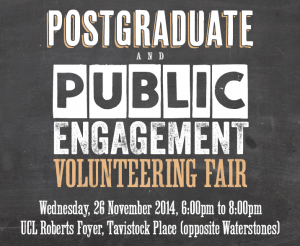Considering the charity sector? The pros and cons
By UCL Careers, on 22 January 2015
Aaron Marchant from All About Group, gives us his take on the pros and cons of the Charity sector. Don’t forget to register for our Charities and NGOs week starting w/c 2nd Feb 2015!
When hunting for a career, many students don’t consider the charity and not-for-profit sector, choosing instead to focus on other career routes. Here are some pros and cons about working in the sector which might give you something new to think about.
Salary
Ok, so you probably won’t be earning huge amounts of money as soon as you graduate. Starting salaries tend to average between £20,000 and £25,000. These can rise over time to £40,000+ after five to ten years, with the potential to go even higher.
Working environment
Working in the not-for-profit and charity sector often results in an interesting and varied working day. If you choose to work in a support-based role, you’ll be moving between locations and coming into direct contact with clients. This type of work will be especially hands-on – you could be working on outdoor projects or helping vulnerable members of society. Alternatively, you might be based in an office, liaising with support workers and other industry professionals. This would involve the sorts of things you would expect from most office environment, such as more regular hours.
Something different
If you’re interested in making a real difference to society, or you want to work abroad, then charity work is something you should consider. For example, if you choose to work in International Aid & Development, there will be plenty of opportunities for travel. These might range from short trips to assess a situation to working abroad on long term projects. Closer to home, you’ll be able to make noticeable differences to the communities around you.
Open to everyone
Whether you’re doing a law degree, considering a job in the creative arts, or working on a new app, there is something for everyone in the not-for-profit sector. For example, if you’ve been considering graduate finance jobs, the charity sector needs financiers just as much as other companies do. You’ll be able to put your skills to good use whilst giving back to society. Similarly, a creative student might be interested in running community theatre or putting on art events. Whatever your background, there’s more opportunity in the sector than meets the eye.
The bare bones – pros and cons
Pros:
- Challenging
- You can make a difference every day
- Variety of working options
- Opportunities for travel and working abroad
Cons:
- Can often be emotional
- Relatively low potential earnings
- Sometimes stressful
The not-for-profit and charity sector, therefore, has a lot to offer. Whether you’re someone who is passionate about helping others, want to use your knowledge in a social context, or just wants to try something different, it’s a career well worth considering.
Aaron Marchant works at www.allaboutcareers.com, a careers advice service for students and graduates
Register for the UCL Careers Charities and NGOs week here: http://www.ucl.ac.uk/careers/events/getinto
 Close
Close



